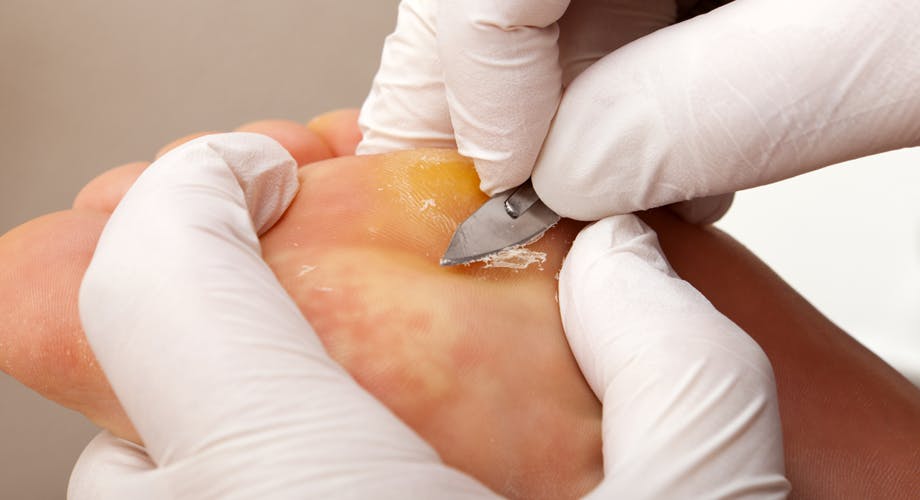Corns and Callus

We treat callus and corns every day. Almost anyone can have a problem with hard skin on their feet, but it is more common as you get older.
Callus is thickened skin that forms on the soles of your feet. Depending on the location and the severity of the callus, it can cause pain when walking.
Callus grows on your feet due to excess pressure and friction, your skin quality (i.e. either dry or moist skin), poor footwear or arthritic changes. Your skin type and foot type will play a role in how quickly you develop callus.
Having a small amount of hard skin on your feet is relatively normal, but if the callus builds up rapidly or causes pain, there may be an underlying problem that could be addressed to improve your skin health.
Corns are thickened skin that forms at a point of pressure.
Commonly, we see corns on the small toes (5th digits), or on clawed toes due to footwear pressure. However, corns can grow anywhere that has increased pressure – even between your toes or on the soles of your feet.
TREATMENT
Our podiatrists will treat the corns and callus on your feet during your initial consultation. This is a painless procedure and will have you walking from the appointment much more comfortably than when you came in.
We will assess your foot type, skin type and footwear, and provide a treatment plan to help you prevent the problem from recurring. Additional products may be required, such as silicon pads that provide cushioning to prominent joints, or professional moisturisers or other creams to improve your skin quality.
Footwear plays a significant role in your corn and callus growth. Your Podiatrist is knowledgeable in a range of footwear options that will help prevent corns and callus from recurring.
If your podiatrist believes there is an underlying biomechanical cause for your corns or callus, they will recommend you return for a biomechanical assessment.
Management and Prevention of Callus and Corns
- Ensure your shoes are correctly fitted and do not place excess pressure on your toes or other joints
- Ensure your shoes have a cushioned sole
- Unhealthy skin will increase callus or corn growth. Sometimes your skin may be dry and require moisturiser, but other times your feet may require a reduction in moisture, or treatment for other conditions such as dermatitis or tinea. Your Podiatrist will be able to help you choose the appropriate products to improve your skin condition
- While there are many over the counter remedies for corns and callus, these products are not without risks. If you are unsure of what your foot condition is, we recommend you seek professional advice before going it alone.
- People with underlying health conditions such as Diabetes or poor circulation should not attempt to remove corns or callus without professional advice due to the risks associated with wounds.